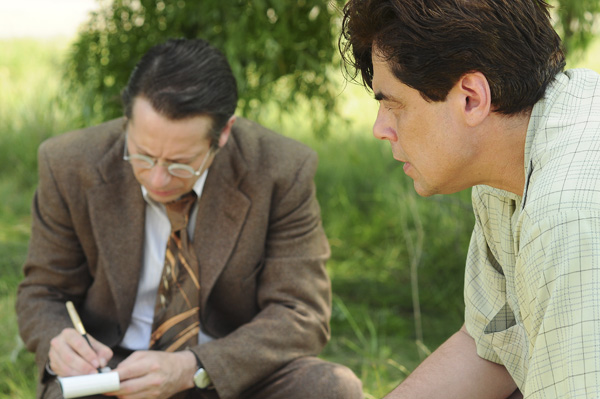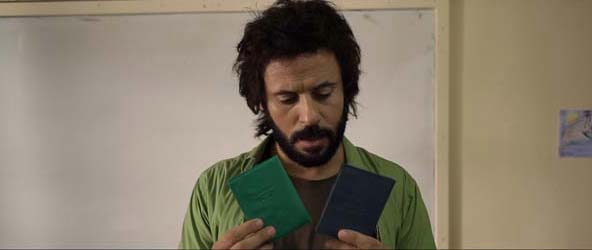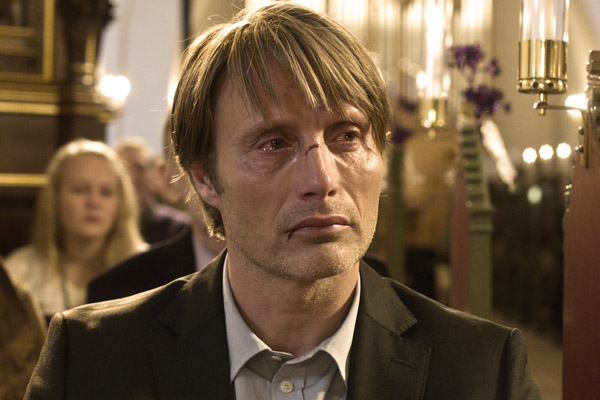There’s thieves and fights, music and dancing, superstition and arranged marriages in Martin Sulik’s Gypsy. However, the authenticity of the local, nonprofessional cast and the rare images of a shantytown Roma ghetto in mountainous Eastern Slovakia mostly outweigh the stereotypes and the imposition of a Hamlet-like story.
Roma life is seen through the eyes of young teenage Adam (Janko Mizigar). He flirts at school with the lively Julka (Martinka Kotlarova) and after school trains in the boxing club run by the mentoring priest (Attila Mokos) that gives him an anger outlet from the racist taunts of town bullies. But family pressures start taking over his life when his father is suspiciously killed and appears to Adam in waking dreams, urging his son to avenge his death. (The very corporeal ghost seems to reflect Roma beliefs in the realism of spirits, as seen in Tony Gatlif’s Korkoro.) While every movie about gypsies perforce includes a wedding celebration, this one is tinged with foreboding, because Adam’s mother (Miroslava Jarabekova) marries her husband’s brother Zigo (Miroslav Gulyas). As a moneylending thug, Zigo is, literally, the physical heavy of the piece, but Gulyas is as charismatic as he is brutal and conveys a convincing history of fraternal jealousy.
Sympathy blends with some clichés as Adam’s stresses mount. (The script was developed and translated in consultation with Roma). He tries to find legitimate work outside the village to help his family have an alternative to Zigo’s criminal largesse, but even when buses will stop for Roma, town employers discriminate and cheat them. Leaving tensions at home to hang out with Julka also becomes fraught as her family gets suspicious of where their affection will lead (after all, his mother was pregnant with Adam at 14 when his father first went off to jail), and they threaten to sell her off to a rich man in the Czech Republic.
Zigo’s concept of being a father figure is to impress Adam into his gang of thieves, and after the teenager gets caught during a robbery, the priest bails him out of jail and provides a refuge at the gym away from home. The priest seems so much out of an old Hollywood movie that I expected him to speak with an Irish brogue, but he represents a potential future without stealing and with education. Sadly, Adam and Julka give into family traditions that will keep them further from modern opportunities.
While there has been a lot of news coming out of the European Union about increasing attacks on Roma, it is not clear whether the segregation seen here and lack of physical and economic mobility is legal or unauthorized, or how representative this village is for the almost 200,000 Roma living in Slovakia. But this moving first look at a poor, isolated community full of unemployed men hanging around and half-dressed children playing in the dirt provides some context for understanding their problems.






Leave A Comment